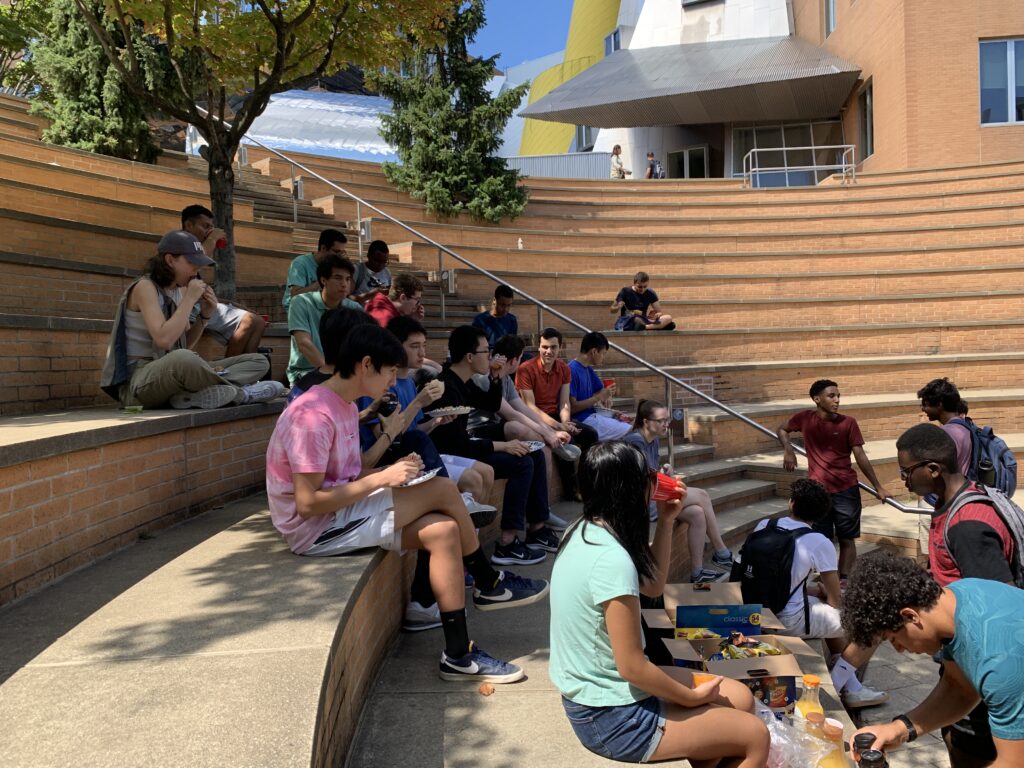
EECS-specific recruitment and outreach programs
MIT EECS created the Rising Stars in EECS workshop series to encourage top early-career women in electrical engineering and computer science to explore life in academia.
6.811 and the AT Hackaton teach students about human disabilities, assistive technology, accessibility, humanistic co-design, rapid prototyping, and project management.
MIT EECS is a member of the FLIP alliance, which seeks to address the broadening participation challenge of increasing the diversity of the future leadership in the professoriate in computing at research universities as a way to achieve diversity across the field (contact Eric Grimson, Armando Solar-Lezama and Frédo Durand.)
The department has run optional in-person training programs for faculty, undergraduate and graduate students based on interactive theater with Theater Delta.
MIT Summer Research Program (MSRP) for talented sophomores, juniors, and non-graduating seniors who might benefit from spending a summer on MIT’s campus, conducting research under the guidance of MIT faculty members, postdoctoral fellows, and advanced graduate students (contact: Karl Berggren).
Women’s Technology Program program for female high school rising seniors who love and excel at math and science but have little or no background in engineering and computer science.
MITES A six-week science and engineering program at MIT for rising high school seniors from across the country (contact Cardinal Warde.)
PRIMES: Program for Research in Mathematics, Engineering and Science for High School Students
MIT Outreach ; PK12 ; PKG ; and J-Wel
MIT-wide organizations
MIT is a member of Access Computing, where High school, college, and graduate students with disabilities can connect with mentors and professionals to learn about internships and other opportunities in computing fields (contact Rob Miller and Kyle Keane.)
The First Generation Program (FGP) is committed to building a sense of community among first generation MIT students, faculty, alumni, and staff, while raising awareness of their unique experiences.
Interphase EDGE: A two-year scholar enrichment program which includes a seven-week summer session as well as programming during the academic year to help ease the transition to MIT and to build community among new students.
MIT RISE award (Recognizing Individuals Supporting Equity)
MIT is a member of the GEM consortium, a network of leading corporations, government laboratories, top universities, and top research institutions that enables qualified students from underrepresented communities to pursue graduate education in applied science and engineering (contact Scott Tirrell.)